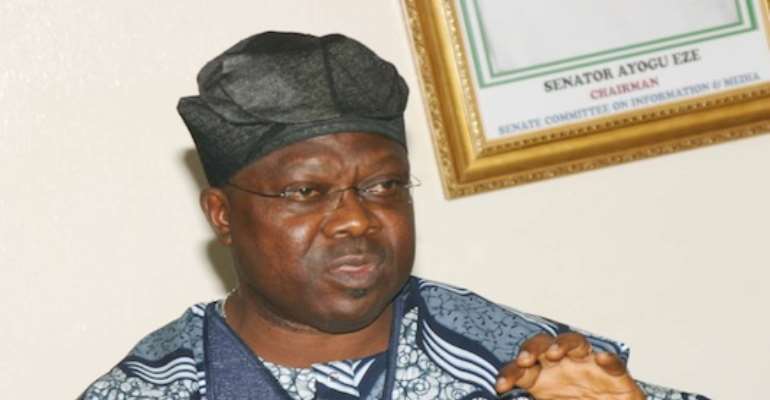Senate Passes N4.971T 2011 Budget; Up N433 Billion

ABUJA, March 16, (THEWILL) - The Senate today passed a harmonized 2011 harmonized budget of N4.971trillion as against the sum of N4.538trillion presented by President Goodluck Jonathan thus jacking up the figures by about N433billion.
Recall the President had first presented a total figure of N4.226trillion and subsequently forwarded additional proposals of N312billion, thus increasing the figure to N4.538trillion, without filing any reason for its action.
Nonetheless, out of the sum, N496.617billion is for Statutory Transfers, N445.096billion is for debt service, N2.467trillion is for Recurrent (non-debt) expenditure whilst the balance of N1.562trillion is for contribution to the development fund for Capital Expenditure for the year ending on the 31st Day of December, 2011.
Explaining the increase while presenting his committee’s report, Senate Committee Chairman on Appropriation, Senator Iyiola Omisore said the Presidency sent addition proposals to his committee till Friday 11th March, 2011 in the sum of N312billion.
According to him, “Whilst the 2011 budget was being processed by the various committees, the executive kept sending additional proposals till Friday 11th March, 2011 with adjustments, differentials, and errors in the sum of N312billion to augment MDAs key priority expenditure.
“Apart from the request for extra funding, modifications were effected in the budge of certain MDAs due to re-prioritization of their spending within the original ceilings”, he said.
However, the 2011 budget according to him is predicated on the following assumptions; Benchmark Oil Price -US$75per barrel. (This was increased from US$65per barrel at the time the bill was presented by the presidency), Crude Oil Production of 2.3million barrels per day, Joint Venture Production of US$5.4billion, 7percent GDP and Exchange rate of N150 to US$1.
Omisore again explained that the mark up in the oil benchmark was agreed to with the Federal Ministry of Finance and other revenue agencies.
In his words; “Consequent upon the meeting with the Federal Ministry of Finance and other revenue agencies, the Finance Committee adopted a benchmark of US$75 per barrel of crude oil. The Appropriations Committee did not object to the recommendation. The surpluses were largely deployed to reduce the budget deficit in line with international best practice.
Omisore further explained that the 2011 budget was premised on government’s determination to establish and strengthen the sound macroeconomic environment that Nigeria needs to ensure the prosperity of our citizens; attract investment, facilitate private sector growth, boost employment generation and ensure wealth creation and other socio-economic development goals under the Vision 20:2020 framework.
The breakdown shows that under the Recurrent (non-debt) expenditure, Defence/Ministry of Defence/Army/Air Force/Navy got the highest share of N311, 692,345,592; Education got N311, 692,345,592; Police formation and commands got N296, 569,995,125; Health got N203, 338,852,933; Interior got N152, 310,965,961; Works got N86, 684,115,362; National Security Adviser got N63, 252,948,842 while Secretary to the Government of the Federation got N67, 604,822,204.
Others include Youth Development got N44, 208,608,401; Foreign and Intergovernmental Affairs got N40, 992,135,003; Petroleum Resources got N38, 489,462,056; Agriculture and Rural Development got N34, 213,326,513; Culture and National Orientation Agency got N17, 916,793,825; Justice got N27, 714,987,811; Information and Communication got N28, 021,995,211; Presidency got N29, 583,128,892; Science and Technology got N23, 110,277,445 while Commerce and Industry got N10, 601,160,220, while FCT got zero allocation.
On the capital expenditure, Works got N188, 976,911,405; N100 billion for Presidential intervention projects; Power got N99, 071,180,886; National Service Adviser got N87, 880,603,628; Niger Delta got N88, 400,001,680; Water Resources got N73, 725,333,674; FCT got N70, 183,583,306; Education got N59, 567,897,860; Defence/MOD/Army/Air Force/Navy got N68, 784,705,571; science and Technology got N60, 249,988,273; Health got N63, 393,418,568; Transport got N50, 304,463,249; Lands and Housing got N52,468,474,724; Aviation got N33,741,977,785 while Environment got N17,993,615,642.
